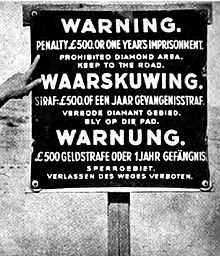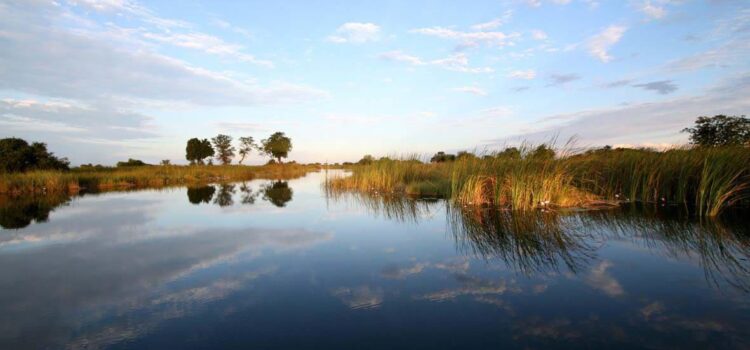This article was originally published on LinkedIn by Gys Joubert, the Managing Director of the Gondwana Collection, which is a lodge operator here in Namibia, and we have received kind permission to reproduce this article here.
What is it that the tourism industry is asking of our government?
No need to repeat the numbers in terms of the massive impact that tourism has on Namibian society; especially in rural Namibia, as well as the direct and indirect impact it has on the well being of our economy.
People in tourism, like all other Namibians, are part of this society. Namibia is our home and we have a deeply-rooted love for our country. By presenting our beloved Namibia to the world, we make a difference. We understand that the worst thing we could do now is to simply throw open our borders regardless of the possible consequences. We understand and support the notion that first and foremost we must look after the well-being of Namibians. We further fully understand that as an industry we have the most to lose, in the short and the long term, if we do not reopen the borders for Namibian tourism in a measured and responsible manner.
- In its simplest form, we proposed the following main mitigating criteria for the reopening of tourism:
- To only allow tourists from countries who have 30 new infections or less per 100 000 inhabitants over a rolling 14-day average (that is 0,0003% odds of an infected person).
- Only one port of entry to start with, which will be Hosea Kutako International Airport.
- The traveler would need a negative PCR test (Covid-19 test) no older than 72 hours prior to boarding the plane.
- Medical travel insurance would be required to ensure no impact on public health facilities in Namibia.
- On arrival, visitors would be required to take another (second) PCR test.
- Tourists will need to be based at a fixed address for the first three nights until local PCR test results are confirmed.
- A fixed itinerary for the full trip will be required to ensure traceability.
- Strict protocol at all establishments and operators according to international benchmarks to ensure we limit the physical interaction between our employees and the guests. This is to ensure the safety of both employees and the visitors.
By implementing these measures we try to bring back tourism in a responsible and measured manner. Is this a watertight guarantee that no Covid-19 cases can slip through? It makes it highly unlikely, but no, there are no guarantees. If we however choose to keep our borders closed, either directly or via impossible requirements for tourists entering, then unfortunately we can provide guarantees. It is not fear mongering; it is simply a fact that tourism companies cannot hold on for much longer. Thousands of employees, who are mostly young and of which many come from mostly rural areas, will lose their jobs, their livelihoods and their contribution to rural families and communities because tourism companies will eventually be left with no choice but to close down, like some already have.
To enforce a 14 day quarantine or any form of quarantine will have the exact same effect as keeping the borders closed. No tourist will come to Namibia to spend time in quarantine and airlines will not fly here because there will be no demand.
I, like 99% of the Namibian population, have not been tested for Covid-19 but I can rightfully move around Namibia as I wish (except for Erongo – which limitations will obviously also apply to tourists). Yet, we do not want to allow tourists (only from low risk countries) to come and spend their money in our country (which will protect livelihoods) even after they were tested twice. How does that make sense?
Tourists will not be coming to Namibia to socialise, they will come to enjoy our wildlife and our wide-open spaces. After all, for many people the world pandemic reminded – or taught them anew, the value of open spaces and being able to move around freely.
Covid-19 is on this planet and unless you are an island, you cannot keep it out. It is not our governments fault- we cannot blame anyone; it is here, and we will have to accept it. Responsibility lies at an individual level to do the right things to ensure we mitigate the spread and we protect the vulnerable people in our society. Why do we think it will be better tomorrow? The virus will not disappear. It will be with us probably for another year. This virus will not come to wipe us all out. That is a fact.
We have movement across all our borders on a daily basis. We import the majority of our consumables from South Africa. It is disappointing to see how truck drivers are vilified by some on social media. Have a look at the food you are giving to your children. I bet the majority of it comes from South Africa and it was brought here by a truck driver. A truck driver who knows that unless he is willing to cross the border into South Africa, he cannot feed his own family. He has to put himself in harm’s way to ensure that you and I have food and our businesses have products to sell.
Truck drivers of Namibia, I salute you.
The industry leadership and representation have put in a herculean effort to represent our industry, without fear or favour, from day one of this crisis, and in the most committed and selfless manner. I have been privileged to be a witness to some of these efforts and no matter the outcome or whether we realize it or not; we will be indebted to them forever.
Our fate is out of our hands. It is now in the government’s hands, and herein lies another problem.
I have no desire to be controversial and I firmly believe in building bridges rather than burning them, but sometimes certain uncomfortable truths must be aired to start the conversation.
As a Republic (for the people by the people) we must understand that the only source of funding that government has is taxes. Government can also borrow money, like they are doing, but the debt burden remains on the taxpayers of today and tomorrow who eventually will have to repay this debt. There is no such thing as public money, there is only taxpayers’ money. Yet at the moment taxpayers are suffering with livelihoods lost, salaries cut or staring into the abyss of losing what took a lifetime to build. All while government employees (whose salaries are funded by taxpayers) are enjoying 100% of their salaries and benefits. How is that fair?
Unprofitable State-Owned Enterprises getting government bailouts, using taxpayers’ money which enables some of those SOEs to unfairly compete with taxpaying private companies. All whilst many tax paying private companies have no choice but to send their employees, people who have sometimes given the better part of their lives to an employer, into a future of no hope. Do we realise or even care about the impact of a breadwinner coming home to tell his or her family that they have lost their job? And in addition to this, the impact is also disproportionate to the poorest of our nation.
Is this fair? Is this just? I honestly do not mean to be divisive or harsh but as I write this my mind wanders to the poem of Charles Bowen:
“The rain, it raineth every day on the
just and the unjust fella,
But mostly on the just,
Because the unjust has the just’s umbrella.”
How can government employees make the right decisions for non-governmental employees – people like you and me – when they themselves do not share the risk, they do not stand worryingly close to the edge of the cliff with a bitter reality looming ever so close?
What is the narrative here? What is the story we tell each other? Are we ultimately one nation with one destination or are we simply 2.5 million people living in close proximity to each other?
Gys
If you would like to read more on this topic, feel free to dig deeper https://ati-holidays.com/carry-on-travelling/


